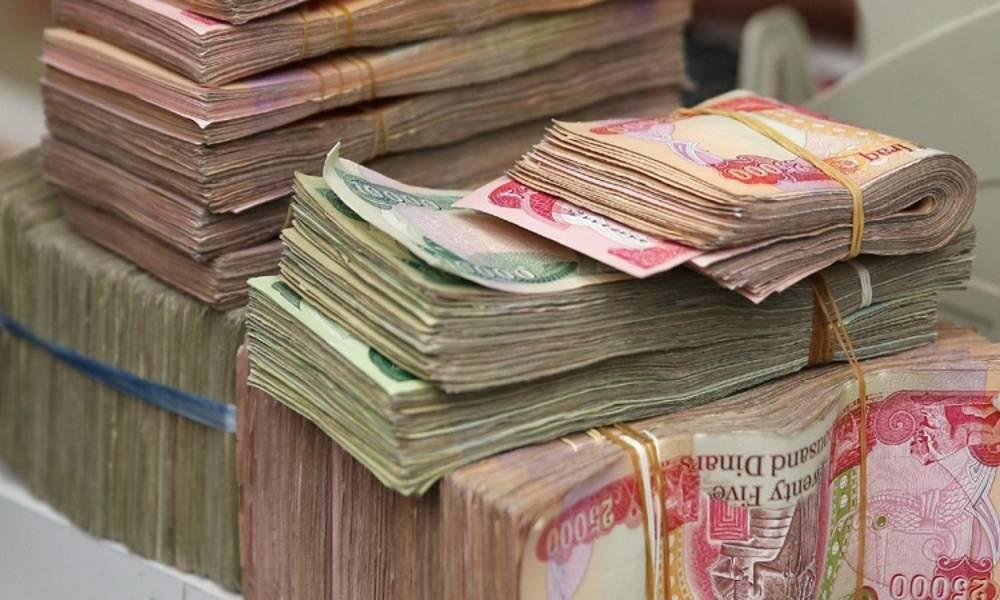Iraq “without salaries” for two years at most.. Former minister warns of “collapse”
Iraq “without salaries” for two years at most.. Former minister warns of “collapse”
2025-01-14 05:55
 Shafaq News/ The former Iraqi Minister of Electricity, Luay Al-Khatib, warned on Tuesday that the state would be unable to pay the salaries of government employees within two years at most, and while he saw that the feudal style would lead to “inevitable collapse”, he revealed the cost of rebuilding Iraq as a whole.
Shafaq News/ The former Iraqi Minister of Electricity, Luay Al-Khatib, warned on Tuesday that the state would be unable to pay the salaries of government employees within two years at most, and while he saw that the feudal style would lead to “inevitable collapse”, he revealed the cost of rebuilding Iraq as a whole.
Al-Khatib said in a tweet on Twitter (X) previously, which Shafaq News Agency reviewed, “What we need in Iraq is to master building the state on solid foundations, but what has happened since the collapse of the dictatorship in 2003 is the establishment of fiefdoms that live on the care of private and factional interests and a clientelistic private sector as fronts for political groups that benefit, which has limited the attraction of real investments and hard currency. This style of governance will lead to inevitable collapse due to the lack of social justice and economic sustainability and the spread of political, financial and societal corruption.”
He explained that “the deficit rate in the federal budgets reached 40%, and if the situation continues without a radical reform of the economic system in Iraq, and if the cash reserves are affected in light of the fluctuation or collapse of oil prices, the value of the local currency will collapse and the state will be unable to pay the salaries of public employees within two years at most.”
The former Minister of Electricity stated that “the electricity file is a local political one and there is no truth to any foreign interference. The reason for the failure to reform it and not privatize it in a sound manner is the adherence of political interests to the inherited socialist contexts in the shadow of a chaotic, undisciplined democracy. This led to the spread of corruption in inflating the estimates of government contracts and the quotas in them and in the fuel allocated to this sector.”
He pointed out that “the value of the government support bill in global markets for the energy sector in its two parts (electricity and oil) exceeded $30 billion annually, of which $20 billion annually is for the electricity sector. This drain on the state treasury and resources cannot continue without a legal reform of the sector’s structure, an economic reform of the commercial model, amending the tariff, automating collection and imposing it by law, canceling the exception lines, lifting the violations, and amending the tax system to recover costs and ensure a profitable profit margin so that the sector is attractive to investments and prepared for privatization according to international standards.”
He pointed out that “the cost of rebuilding all of Iraq requires more than one trillion and five hundred billion dollars, and this amount cannot be provided from oil revenues, but rather from attracting investments and hard currency. Therefore, there is a need to provide a safe and secure environment for investments on the basis of commercial competitiveness, far from political interference and armed groups, in addition to providing incentives for investors that compete with what is offered in the countries of the region and the world.”
Al-Khatib concluded by saying, “The task of radical economic reform in line with the Iraqi constitution requires a period of ten years with continuous, integrated, cumulative effort and without any factional interference. It is a responsibility that goes beyond the powers of the minister and the ministry, but rather the powers of the ministerial cabinet, provided that the government is politically supported with a major media education campaign for the people with an explicit and clear discourse, because the responsibility is shared by everyone.”
shafaq.com
